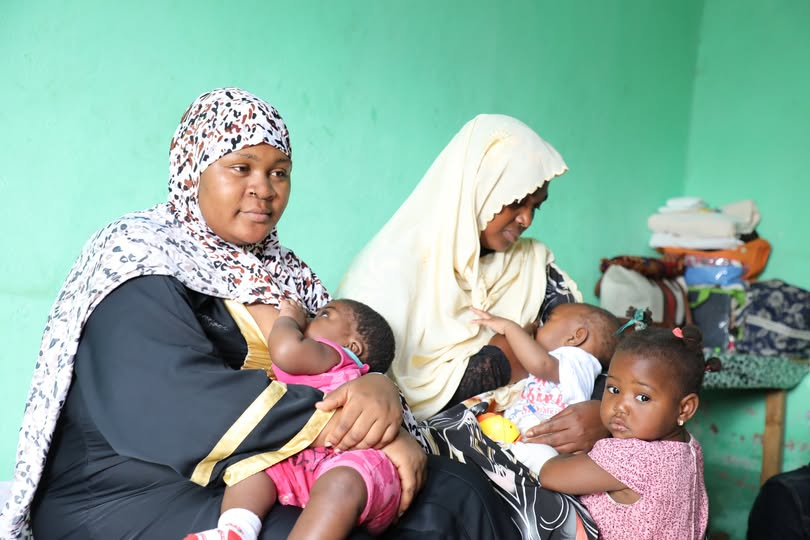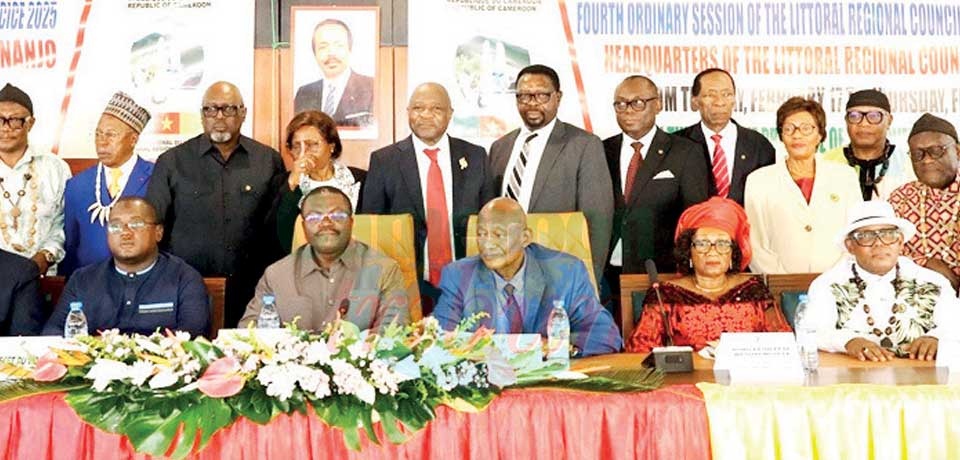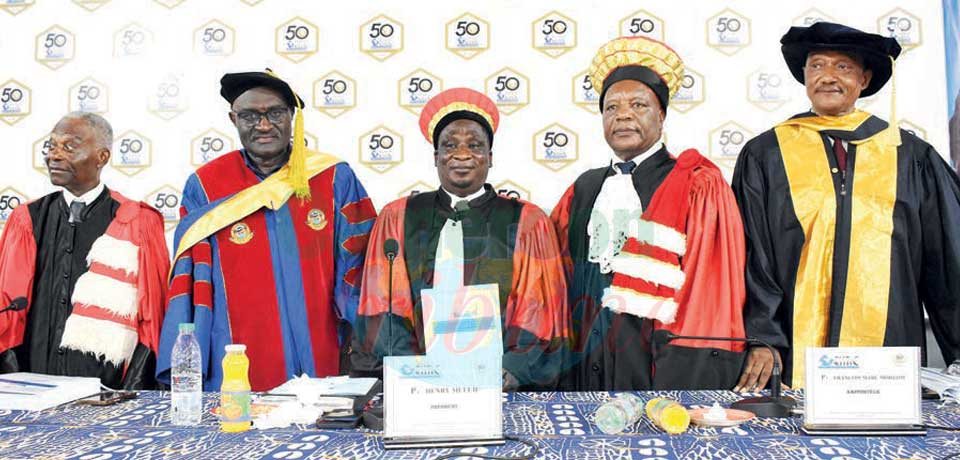Infant Nutrition : Assuring Sustainable Support Systems For Optimal Breastfeeding
- Par Kimeng Hilton
- 08 Aug 2025 16:22
- 0 Likes

The United Nations Children’s Fund, UNICEF on August 7, 2025 in Yaounde organized a debriefing session with the media. To mark this year’s World Breastfeeding Week.
Though more than 90 per cent of women in Cameroon breastfeed their babies, the practice of exclusive breastfeeding remains insufficient. The country’s 2018 Demographic and Health Survey, DHS, says only 39.7 per cent of children under six months of age are exclusively breastfed.
Short Of Targets
This figure falls short of the targets set by the World Health Assembly, which aims for 50 per cent by 2025 and 60 per cent by 2030. Likewise, immediate postnatal breastfeeding initiation is still low - 43.1 per cent in health facilities and 35 per cent at home. While only 23 per cent of women continue breastfeeding until the baby attains the age of two.
Breastfeeding Requires Supportive Environments
It because of these concerns that the United Nations Children’s Fund, UNICEF on Thursday August 7, 2025 in Yaounde organized a debriefing session with the media. The aim of the media briefing was to strengthen media understanding and engagement on breastfeeding issues. With a view to better media coverage and increase advocacy for sustainable support systems. In line with the theme of this year’s World Breastfeeding Week, WBW, which ran from August 1-7, 2025: “Prioritizing Breastfeeding: Creating Sustainable Support Systems.”
Prerequisites For Optimal Breastfeeding
Expatiating on this year’s World Breastfeeding Week, Nadine Perrault, UNICEF Cameroon Country Representative, said breastfeeding was not the concern of women only. They need supportive enabling environments in order to breastfeed optimally.
According to her, a number of prerequisites are required for women in Cameroon to breastfeed optimally. These are gender-sensitivity, instituting in institutions for the creation of spaces for breastfeeding, allocating time for breastfeeding during work hours, and creating opportunities for exclusive breastfeeding.
Baby-friendly Health Facilities
Others are collaboration between the private and public sectors, the availability of adequate and adapted health systems, the availability of daycare services, the presence of baby-friendly hospitals, family and community support to implement existing policies. And assuring the social protection of vulnerable families like the displaced, refugees….
Immediately After Birth
“Health facilities should promote breastfeeding by ensuring that immediately a baby is born, they are taken to the mother for breastfeeding. On the other hand, all workers in a health facility should be able to promote exclusive breastfeeding,” Nadine Perrault stressed.
Significant Progress, Though…
As Cameroon celebrated the 33rd World Breastfeeding Week 2025, the Minister of Public Health, Dr. Malachie Manaouda, released a statement recalling that the Demographic and Health Surveys (DHS) conducted from 1991-2018 showed significant progress in breastfeeding-related indicators.
“Thus, breastfeeding within one hour of birth increased from 11.9 per cent in 1991 to 48.4 per cent in 2018. Similarly, exclusive breastfeeding (EB) of children aged 0 to 6 months increased from 28 per cent in 2011 to 40 per cent in 2018,” the Minister said.
Short Of WHO Recommendations
“This significant progress is the result of strong social mobilization and increased support for mothers and communities,” the Minister acknowledged. However, Dr. Manaouda noted, these results remain below World Health Organization, WHO recommendations, which advocates an exclusive breastfeeding rate of at least 50 per cent by 2035 for each country. “It is therefore imperative to intensify efforts to improve these indicators,” he appealed.
Not Women’s Concern Alone!
According to him, this year's theme must - “Prioritizing Breastfeeding: Creating Sustainable Support Systems” - inspire additional action. “Breastfeeding does not depend solely on a mother's will, but requires collective and coordinated support. Many of the challenges women face must be addressed, including isolation, lack of support, social pressure, and professional constraints.
“It is important to create a caring environment at home, at work, in healthcare facilities, and in society to enable mothers to breastfeed in the best possible conditions,” Dr. Malachie counselled.
Public Health Priority
“Moreover, we must build strong support networks, encourage solidarity, and value the role each of us plays in the success of breastfeeding,” he said, calling for the adoption of concrete policies to protect “this natural, v...
Cet article complet est réservé aux abonnés
Déjà abonné ? Identifiez-vous >
Accédez en illimité à Cameroon Tribune Digital à partir de 26250 FCFA
Je M'abonne1 minute suffit pour vous abonner à Cameroon Tribune Digital !
- Votre numéro spécial cameroon-tribune en version numérique
- Des encarts
- Des appels d'offres exclusives
- D'avant-première (accès 24h avant la publication)
- Des éditions consultables sur tous supports (smartphone, tablettes, PC)














Commentaires